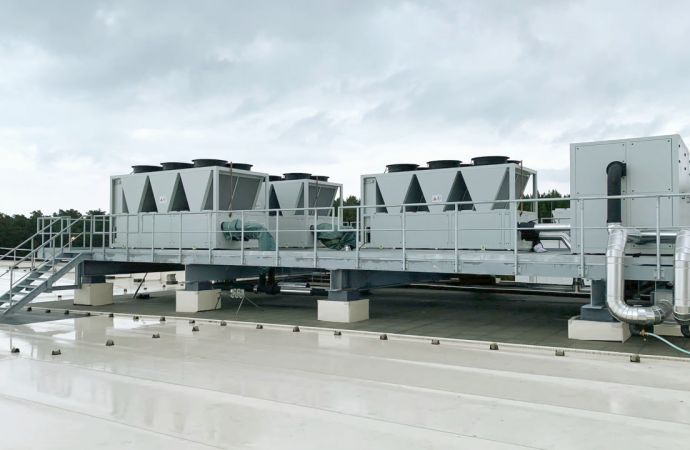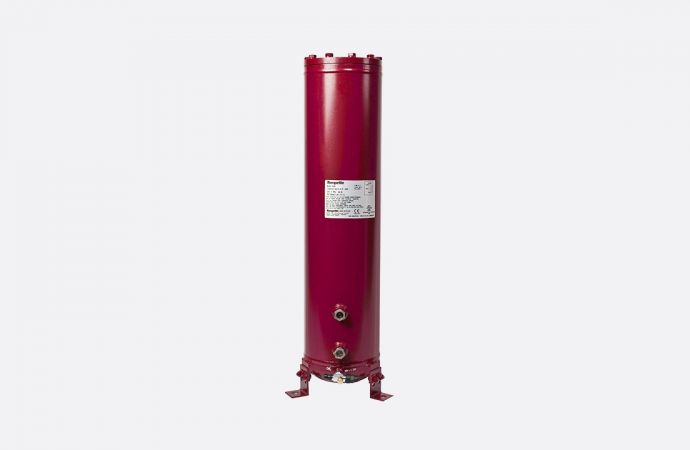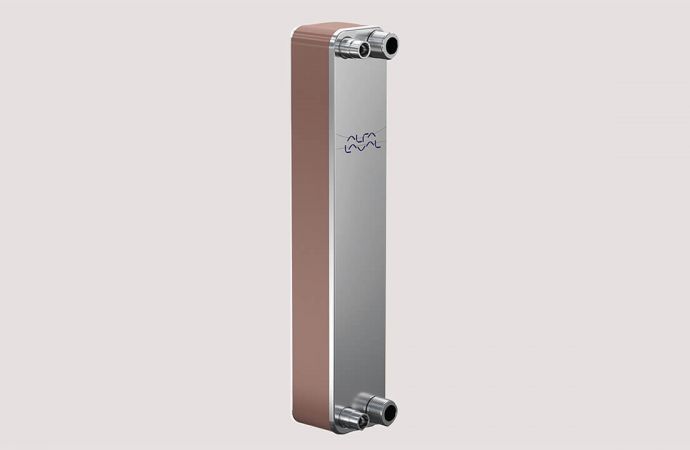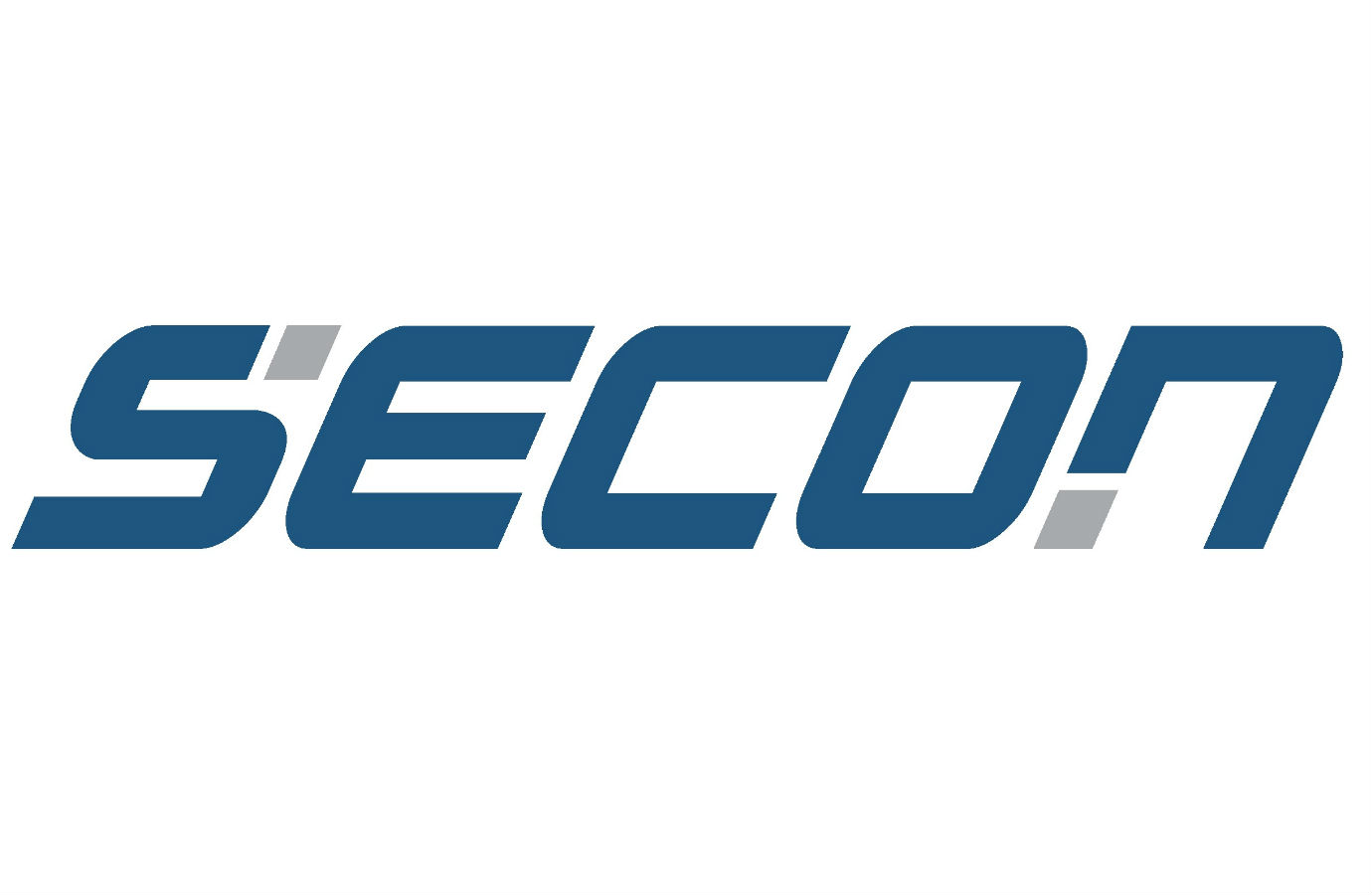Embraco manufactures hydrocarbon compressors while Secon provides chiller systems.

A Secon R290 chiller installed in Berlin.
Brazilian compressor manufacturer Embraco and German manufacturer Secon have become silver partners on Hydrocarbons21.com, elevating from bronze partners.
Embraco, a part of Nidec Global Appliance, produces hydrocarbon compressors of all sizes. Last month, the company launched a miniature isobutane (R600a) compressor only 123mm (4.8in) high for domestic refrigeration applications.
Secon is producing propane (R290) chillers, challenging the dominance of ammonia/NH3 (R717) and CO2 (R744) for industrial applications.
Variable speed for Embraco
Over the last few years, Embraco has introduced several variable-speed hydrocarbons compressors, increasing the energy efficiency of its product portfolio.
The variable speed FMS R600a compressor that was introduced last month is a third smaller than its predecessor, but it retains the same maximum cooling capacity of 265W (0.075TR). It is suitable for applications from small beer-and-wine coolers to larger multi-door refrigerators.
The FMS was developed to make it up to 40% more energy efficient than traditional fixed-speed compressors. An added bonus to the new variable-speed model is a 15 to 20% lower noise level than that of equivalent fixed compressors when operating in steady-state conditions, Embraco stated at the launch.

The Embraco FMS compressor. Credit: Embraco.
Embraco’s products are used both in domestic fridges and in commercial applications. One of the company’s customers is Frio Peru, a Peruvian manufacturer of ice-cream freezers. Frio Peru decided in 2017 to use only hydrocarbons in its products. This is a decision the company has not regretted, according to Embraco, as it has achieved a 40% increase in cooling capacity and a 28% reduction in energy consumption for its retail customers since the switch. The move to propane has also helped Frio Peru’s bottom line. From 2018 to 2019, the company’s sales increased by 127%.
Embraco has calculated that its gradual shift from HFCs to hydrocarbon refrigerants has saved the planet a massive 1,568,025 metric tons of CO2e emissions since 2010.
Secon challenging the “big” NatRefs
Ammonia, and increasingly CO2, are the dominant natural refrigerants for industrial applications, but the two are not without competition.
Secon manufactures air- and water-cooled chillers using mainly propane, though for low-temperature applications R1270 (propene/propylene) is used. In high-temperature heat pumps, the company uses isobutane.
The capacity of Secon’s air-cooled units range from 5 to 1,200kW (1.4 to 341.2TR) while providing system temperatures from 20 to -30°C (68 to -22°F). The units have one to four independent refrigerant circuits with “very low” refrigerant charges.
The capacity of Secon’s water-cooled units range from 5 to 900kW (1.4 to 256TR) for system temperatures from 20 to -35°C (68 to -31°F). Here too, a design with one to four circuits is possible.
One of Secon’s customers is a German food retailer that has chosen to install three R290 chillers in a warehouse near Berlin for a total of 900kW (255.9TR) cooling capacity at -2°C (28.4°F). The three units are all air-cooled liquid chillers, with the liquid in this case being brine. They cool the central warehouse’s cold storage rooms for the food retailer, which has not been named by Secon.
Want to find out more, or have something to say about this story? Join the ATMO Connect network to meet and engage with like-minded stakeholders in the clean cooling and natural refrigerant arena.
Related stories





